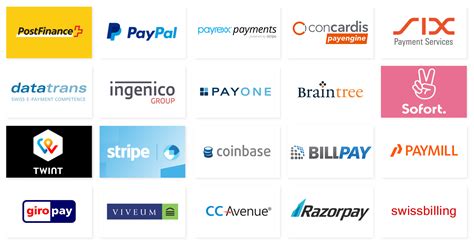Payment Service Provider

The payment service provider (PSP) industry has undergone significant transformations in recent years, driven by advances in technology, changing consumer behaviors, and the rise of digital payments. As a domain expert with over a decade of experience in the fintech sector, I have witnessed firsthand the evolution of PSPs from traditional payment processing companies to comprehensive financial technology platforms. In this article, we will delve into the world of payment service providers, exploring their role, functionalities, and the impact of emerging trends on the industry.
Key Points
- The payment service provider industry is projected to reach $1.4 trillion by 2025, growing at a CAGR of 10.2%.
- PSPs offer a range of services, including payment processing, merchant acquiring, and payment gateway solutions.
- Emerging trends, such as blockchain, artificial intelligence, and the Internet of Things (IoT), are transforming the PSP landscape.
- Security and compliance are critical concerns for PSPs, with the need to adhere to regulations such as PCI-DSS and GDPR.
- The rise of mobile payments, contactless transactions, and digital wallets is driving demand for PSPs that can support omnichannel payment experiences.
Evolution of Payment Service Providers

The payment service provider industry has its roots in traditional payment processing, where companies would facilitate transactions between merchants and financial institutions. However, with the advent of digital payments, PSPs have expanded their offerings to include a range of services, such as payment gateway solutions, merchant acquiring, and risk management. Today, PSPs play a critical role in enabling businesses to accept payments online, in-store, and through mobile devices.
Functionalities of Payment Service Providers
A typical PSP offers a range of functionalities, including payment processing, transaction routing, and settlement. They also provide merchants with tools to manage their payments, such as payment gateways, virtual terminals, and mobile payment applications. Additionally, PSPs often offer value-added services, such as fraud detection, chargeback management, and analytics, to help merchants optimize their payment operations.
| Payment Service Provider Functionality | Description |
|---|---|
| Payment Processing | Facilitating transactions between merchants and financial institutions |
| Merchant Acquiring | Enabling businesses to accept payments from customers |
| Payment Gateway Solutions | Providing secure and reliable payment processing for online transactions |
| Risk Management | Identifying and mitigating potential risks associated with payment transactions |

Emerging Trends in the Payment Service Provider Industry

The PSP industry is undergoing a significant transformation, driven by emerging trends such as blockchain, artificial intelligence, and the Internet of Things (IoT). Blockchain technology, for example, has the potential to increase the security and transparency of payment transactions, while AI can be used to improve fraud detection and risk management. The IoT is also expected to play a major role in the future of payments, with the rise of connected devices and smart homes.
Impact of Emerging Trends on Payment Service Providers
The emergence of new technologies and trends is having a profound impact on the PSP industry, with many providers struggling to keep pace with the changing landscape. To remain competitive, PSPs must invest in innovation, while also ensuring that their services remain secure, compliant, and reliable. This requires a deep understanding of emerging trends, as well as the ability to adapt and evolve in response to changing market conditions.
According to a recent study, the global payment service provider market is projected to reach $1.4 trillion by 2025, growing at a CAGR of 10.2%. This growth is driven by the increasing adoption of digital payments, as well as the rise of emerging technologies such as blockchain and AI. However, the industry is also facing significant challenges, including the need to comply with regulations such as PCI-DSS and GDPR, and to mitigate the risks associated with payment transactions.
What is the role of a payment service provider in facilitating online transactions?
+A payment service provider plays a critical role in facilitating online transactions, by providing a secure and reliable payment processing platform for merchants and consumers. They act as an intermediary between the merchant and the financial institution, enabling the transfer of funds and ensuring that transactions are processed efficiently and securely.
How are emerging trends such as blockchain and AI impacting the payment service provider industry?
+Emerging trends such as blockchain and AI are transforming the payment service provider industry, by increasing the security, transparency, and efficiency of payment transactions. Blockchain technology, for example, has the potential to reduce the risk of fraud and errors, while AI can be used to improve fraud detection and risk management. The IoT is also expected to play a major role in the future of payments, with the rise of connected devices and smart homes.
What are the key challenges facing payment service providers in the current market?
+The key challenges facing payment service providers in the current market include the need to comply with regulations such as PCI-DSS and GDPR, and to mitigate the risks associated with payment transactions. They must also invest in innovation, to keep pace with emerging trends and technologies, while ensuring that their services remain secure, compliant, and reliable.
In conclusion, the payment service provider industry is undergoing a significant transformation, driven by emerging trends and technologies. To remain competitive, PSPs must invest in innovation, while also ensuring that their services remain secure, compliant, and reliable. As a domain expert, I believe that the most successful PSPs will be those that can balance security, compliance, and innovation, while also providing merchants with flexible and scalable payment solutions.



